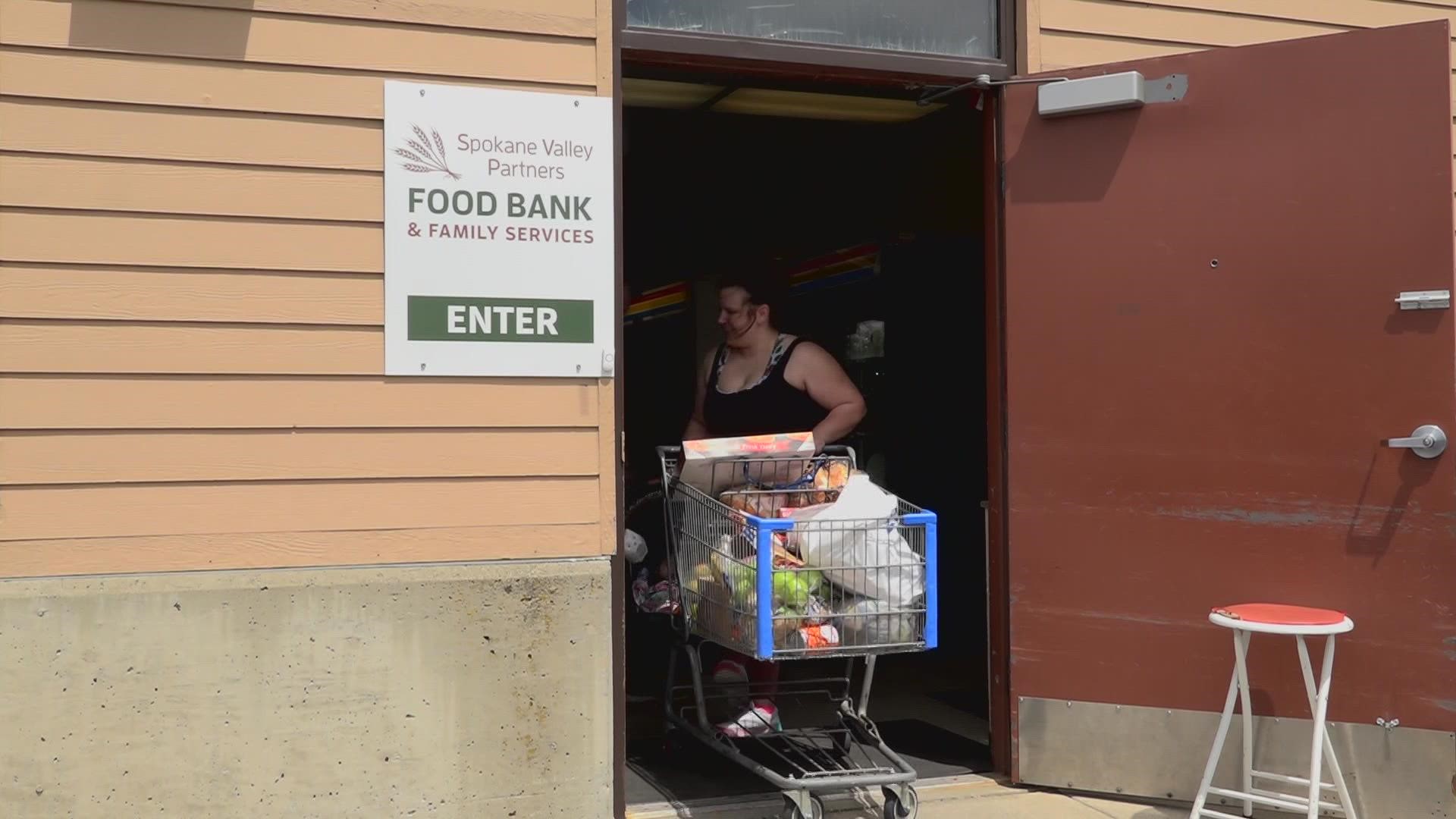SPOKANE VALLEY, Wash. — Across the country, food banks are experiencing shortages.
In Spokane, food bank officials said inflation is causing a demand-and-supply imbalance even worse than the COVID-19 pandemic.
Food banks said now they are having to consider making hard decisions like giving less food to accommodate the increase of those in need.
Spokane Valley Partners is one of the largest food banks in the Inland Northwest. The communications director said the food bank was hit hard during the pandemic, but it doesn't compare to the hardships of today.
“The narrative during COVID of long lines at the food bank isn’t being told anymore and it’s worse than what it was," Angie Kelleher SVP communications director said.
Between the first quarter of 2021 to 2022, officials said they’re serving 36% more clients. With increased demand and rising costs of food, the food bank is struggling to keep up.
“We are at a point now where we’re having to make difficult decisions like, 'do we start putting less in carts?,'" Kelleher asked. "Do we tailor our mobile distributions back to fewer per month? We’re having such a difficult time meeting the need.”
Community partnerships director Eric Williams describes Second Harvest as the food bank for food banks. He said working with 280 regional partners, he knows this is a hard time for food banks.
“In January, February or so, they started reporting a real uptick in the number of clients and 90% of those were primarily inflation driven," Williams said. "That was what was bringing a lot of people in. That’s what was bringing in a lot of people who had never been to a food bank before.”
Williams said Second Harvest helps eliminate the worry for families wondering where their next meal is coming from.
People in Second Harvest's mobile food pantry line said after considering other costs of living, they think food banks are an essential service.
“Prices are so high right now, even with the job, it’s hard to make ends meet," Tom Roullier said. "By the time you pay for gas, you’re lucky if you can pay for any food.”
Roullier said he visits food banks once a month. As a retired veteran with a bad leg that keeps him out of work, he needs the food bank to put food on the table.
The Spokane Valley Partners communications director said she knows there are people in the community who rely on their services, so it's "unnerving" to see so many empty shelves in the warehouse. According to Kelleher, SVP serves 5,000 people each month.
Kelleher worries demand won’t be slowing down any time soon. She said, at this point, food is actually more of a need than money donations.
The food bank says people can help fight these shortages by hosting a food drive with their job, school or church.

